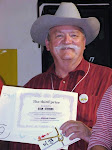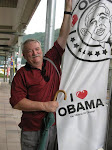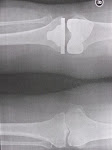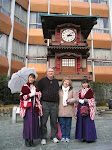I've been reading a book lately that I HIGHLY recommend for everyone in America: The Omnivore’s Dilemma by Michael Pollan. Do you know that everything you eat is either made of, or includes corn? It will forever change the way you look at the food you feed your family. I'm a big believer in "Information is Power" so even if you decide not to change the way you eat, you will be making an informed decision. Here are a couple of quotes that REALLY hit home with me:
"With our food, all of the costs are figured into the price. Society is not bearing the cost of water pollution, of antibiotic resistance, of food-borne illnesses, of crop subsidies, of subsidized oil and water -- of all the hidden costs to the environment and the taxpayer that make cheap food seem cheap. No thinking person will tell you they don't care about all that. I tell them the choice is simple: You can buy honestly priced food or you can buy irresponsibly priced food."
“When you think about it, it is odd that something as important to our health and general well-being as food is so often sold strictly on the basis of price. The value of relationship marketing (that is, buying at a farmer’s market or directly from the farmer) is that it allows many kinds of information besides price to travel up and down the food chain: stories (what the animals ate, how they lived, whether they were injected with hormones and antibiotics, how they were butchered, and veggie pesticides), as well as numbers, qualities as well as quantities, values rather than “value.” And as soon as that happens, people begin to make different kinds of buying decisions, motivated by criteria other than price. But instead of stories about how it was produced accompanying our food, we get bar codes . . ."
It's frustrating to me that our own government has manipulated the farmers and turned food into an industry that is unhealthy not only for the animals that we eat, but for US, the American consumers who eat it. It's not a pretty story, but one that everyone should read. I especially find it interesting, because I now buy all my meats, eggs, fish & produce from Japanese grocery stores instead of the commissary on base. I started doing this because of the freshness factor -- our commissary was having "issues" with meats being kept frozen and safe on the long trip over here. Yes, Japanese food is more expensive, but I soon realized that it not only was it fresher, it just tasted better! And we only get what is in season . . .
This book explains "why." I hope you pick up a copy from your local bookstore SOON. Here's a review: http://www.washingtonpost.com/wp-dyn/content/article/2006/04/06/AR2006040601701.html
Tuesday, January 06, 2009
Subscribe to:
Post Comments (Atom)























1 comment:
So glad to hear that you've read it! I have been reading this for a while (sort of reading a bit, then reading some fiction, then reading a bit more - so it is taking forever), but I am finding it very eye-opening. It's hard to go back from here, knowing what I know. You really have to go out of your way to buy responsibly produced food... but I think it is worth it to do so, so I put forth the extra effort (and money) when I can. Thanks for posting - I hope everybody reads this! Maybe even our new administration will do something about the farm policy!
Post a Comment